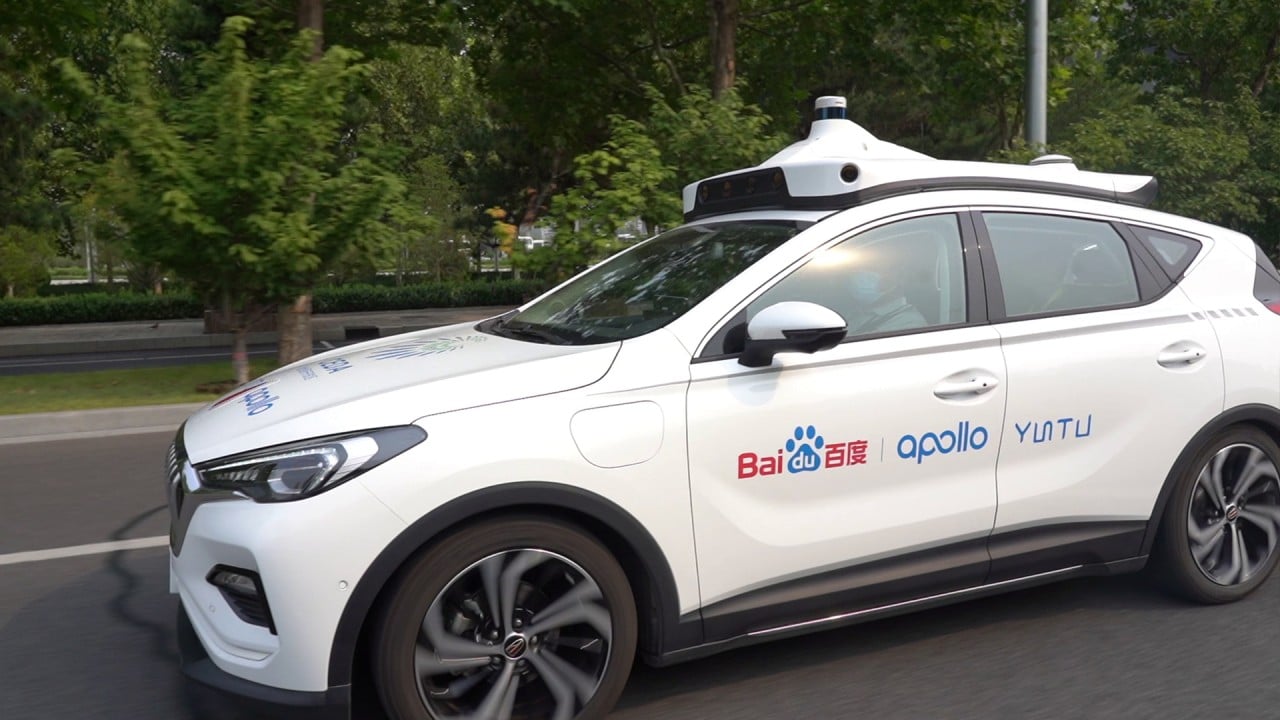
Inside China Tech: Beijing to sharpen country’s R&D focus
- China wants to ensure researchers are focused on relevant tech projects, not on the number of papers they get published
- The urgency of tackling this issue has intensified amid the ongoing tech and trade war between the US and China
Hello, this is Bien Perez from the South China Morning Post’s Technology desk, with a wrap of our leading stories this week.

04:07
China’s automated driving technology speeds ahead with research by search engine giant Baidu
The goal is to ensure the focus is on projects that “achieve real performance”, as opposed to just counting the number of research papers published.
That forms part of China’s broader effort to close its hi-tech gap with the US and reduce dependence on imported technology. Measures to revise the evaluation of researchers started in 2018, part of a push to address a “paper-only” mindset, and cover other criteria, such as academic titles, degrees attained and awards.
China looks beyond GDP growth rate as Beijing outlines five-year plan and 2035 vision
While some progress has been made in how research work gets evaluated in China, awards are still being granted to some scientists for having their papers accepted and published by influential journals, according to Zhang Yewen, a professor of electrical engineering at Tongji University in Shanghai.
“If you don’t refer to any of the four criteria, including which journal someone is published in, how can you evaluate their work,” said Zhang, acknowledging that this state of affairs cannot be reformed completely.
“These judgments can only be made within a very small scientific circle and the public might not be aware of how we do this.”

02:06
Facebook, Amazon, Google and Apple respond to Congress about whether China steals US technology
“For research not focused on the ‘here and now’ but instead on future issues that require a long course of work and accumulation, a liberal system is better,” said Tongji University’s Zhang, who cautioned that China’s collective approach to scientific development does not always work.
Although the share of research and development in the country’s total economic output reached a record high last year, the level remains behind that of the US, Japan, South Korea and advanced European countries, according to the joint report released in August by the National Bureau of Statistics, the Ministry of Science and Technology and the Ministry of Finance.
But local governments will increase their investment to ensure growth in overall public expenditure on research and development of more than 3 per cent, according to the national budget proposal submitted by the Finance Ministry in May to the nation’s lawmakers.
Chinese companies ramp up basic R&D spending as US tech decoupling looms: report
Hit video game Genshin Impact slammed for censorship
The controversy started on the game’s subreddit – a dedicated forum on website Reddit – then spilled over to other social media after well-known Twitch streamer Kazuma Hashimoto, also known as justicekazzy, posted a clip showing how the fantasy adventure game automatically turns a sensitive word into a string of asterisks when typed in its chat box.
“Due to Genshin Impact censoring the words Taiwan and Hong Kong in the in-game chat, I will no longer be posting about the game,” Hashimoto, who is based in Germany, wrote on his Twitter account.
Shanghai-based miHoYo, developer of Genshin Impact, did not immediately respond to a request for comment on the chat-filtering issue.

Censorship of certain words and topics, however, has been standard practice for any Western or Chinese game operating in the country.
“Although there isn’t an official list of banned words … most companies share essentially the same list,” said Daniel Ahmad, senior analyst at gaming consultancy Niko Partners. He suggested that boycotts of Genshin Impact are likely to remain limited.
A possible path for Huawei to survive US sanctions

Huawei says it has enough chips for equipment businesses but not for its smartphones
Still, any move by Huawei to sell off Honor is not expected to directly benefit the company amid ongoing US-China trade tensions.
“Even if Honor becomes a separate business, that doesn‘t guarantee that it won’t get caught up in the trade war later,” said Bryan Ma, vice-president of client devices research at IDC.
Honor accounted for 28 per cent of Huawei’s total smartphone shipments in the first half of this year, according to IDC.
No Chinese company is expected to consider buying Honor, according to Linda Sui, director of smartphone research at Strategy Analytics. “It’s a hot potato,” she said. “It will create big trouble for whoever takes it over.”
And that is all for this week. Until next time.

